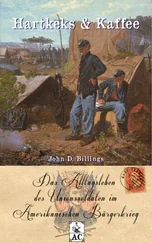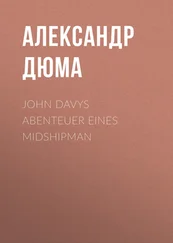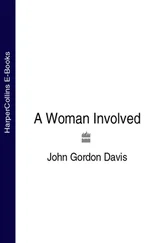‘But I don’t think it’s right for a boy of fourteen to be spending his afternoons and holidays in a stuffy law office.’
‘If I was a farmer my boy of fourteen would be ploughing the land. If I was a shopkeeper he would be helping behind the counter. There is no finer training for a law student than to sit in my office and watch how it’s done. Life in the raw! Crime, divorce, debt-collecting, he’ll have seen it all by the time he leaves school. The boy’s a natural.’
‘Well, I’m sorry but I really don’t think it’s right to spend so much time in court, hearing all those sordid details –’
‘The world is sordid and the best place to learn about it is the courtroom – the forum of human drama, learning to sift the wheat from the chaff, strong points from weak points –’
Beyond the courthouse was the Bhungha, an imposing white building which used to be the Native Representative Council until apartheid put an end to that; and opposite was the school for whites. Umtata had a population of only three thousand whites, but the school taught almost one thousand because most of the pupil’s were the children of the traders who lived way out in the rolling hills that stretched from the Kei River in the west to the Umzimvubu in the east, from the Indian Ocean in the south to the Drakensberg in the north, a territory almost the size of Scotland, of which George Mahoney was the parliamentary representative. On the other side of town, down near the winding Umtata River with its weeping willows, was the poorer part of town, where most of the Afrikaners lived, mostly artisans and railway workers, with chickens and maybe a cow in the backyard. Beyond them, on the very edge of town, lived the Coloureds, the half-castes, and this is also where Patti Gandhi lived.
Legally speaking, the Gandhi family should not have lived in a Coloured area, but in an Asian area, but as there were no other Indians in town the mentors of the Group Areas Act had not yet got around to zoning a separate residential area for them. Mr Gandhi was not allowed to trade in Main Street, which was a white area, but his store two streets back, where he had his small clothing factory, was also tolerated. It was in a grey area which the scientists in Pretoria would have to clean up one day, but until then the police did not know what to do with them.
For the same reason Patti Gandhi’s attendance at the white convent, St Mary’s College, had to be tolerated although she wasn’t even a Christian: the Coloured school was quite inadequate, and of course the government high school, which Luke Mahoney attended, was out of the question. It was George Mahoney who persuaded the police commandant to turn a blind eye, ‘until such time as this bloody government builds an Asian school just for her!’
‘She should be sent to school in Natal, where all the Indians are,’ Colonel Visser said uncomfortably.
‘For God’s sake, Colonel, you can’t tear a family apart! The girl’s in her formative years, the Gandhis are a very law-abiding family and it’s a great expense to send your child away to school!’
‘Old Gandhi’s got more money than you and me put together, sir, and I don’t know how law-abiding he is – look at that swank house he’s built illegally in the Coloured area.’
‘The man’s got to live somewhere and as the government hasn’t yet told him where that is, he’s perfectly entitled to build a decent house on the land he’s owned for decades. And that , you can take it from me,’ he said with more conviction than was warranted, ‘is the law.’ He appealed: ‘If the servants of God are prepared to help her, so should you.’
‘Okay,’ the colonel sighed, ‘I saw nothing. But –’ he held up a warning finger – ‘no sport, hey. No swimming, no hockey, no socializing, none of that nonsense. And one complaint and she’s on the bus to Natal.’
‘On my head be it!’ George Mahoney beamed. ‘She’ll cause no trouble. She’s exceptionally intelligent …’
And she was exceptionally good-looking. As a little girl she was angelic, as a nymph of twelve she was beautiful, as a fifteen-year-old she was gorgeous. She was tall and smooth of movement, with long black shiny hair that reached to her waist, long golden legs under her demure gym-skirt, a face to make one stare, big almond eyes and a smile, when she gave it, to melt the heart. And she caused plenty of trouble in the loins of the boys of Umtata High School. But they seldom saw her: her father drove her to and from school so she would be seen as little as possible in her convent uniform lest a complaint be raised. If the boys wanted to see her they had to go to the Gandhi Store, where she worked after school: but how many excuses could a lad find for buying in a ‘kaffir store’? She often worked in her father’s garment factory, but what excuse could a schoolboy find for visiting that? And when she was seen that beautiful smile was seldom given: she was an aloof, haughty girl.
‘She hasn’t got much to smile about, has she?’ Luke’s sister Jill said. ‘No friends.’
‘Aren’t your friends at the convent nice to her?’ Mrs Mahoney asked.
‘I mean after school.’
‘Well, she should be grateful she’s getting a decent education – and these people prefer their own company anyway.’
‘But there are no other Indians for her to be friends with. Can I invite her home one day to have a swim?’
Ooh, yes please , Luke prayed. Patti Gandhi in a swimsuit …
‘Definitely not. I’m not having Indians in our pool!’
Only one Indian … Mahoney prayed.
‘Mother, she’s perfectly clean, you know!’ Jill cried.
‘The subject,’ Mrs Mahoney said, ‘is closed.’
‘Well,’ Jill sulked, ‘can I at least invite her to my birthday party?’
Mrs Mahoney sighed. ‘No darling – she’ll be like a fish out of water. Who’ll dance with her?’
Me – me – me … Mahoney prayed.
‘I’m all for giving the girl a good education, but socializing with her is something entirely different. And what good will it do her? She can’t keep the friendships up afterwards – it’s even unkind to her …’
Jill turned in appeal to her father: ‘ Daddy ?’
George Mahoney sighed. ‘I think your mother’s right, my dear – if for different reasons. I promised Colonel Visser there’d be no socializing. I’ve got no objection to the girl coming to your party – and, by the way it’s not illegal – not yet – but that is socializing, and it’ll get back to your friends’ parents, and somebody may kick up a fuss, and it’ll get to the police and, well, I’ll have broken the bargain, won’t I, and Patti Gandhi could well be told to leave the convent. It could cause trouble, without her being in any way to blame …’
But Patti Gandhi was to blame for the trouble. It happened in Luke’s second-last year at high school. That was the year the government translocated the people of Sophiatown, the black spot in white residential Johannesburg, to Soweto, the sprawling black township on the outskirts of the golden city. The year of the heartbreak of Sophiatown, the destruction of a whole teeming city within a city, a whole way of life, to replace it with a white middle-class suburb to be called Triomf , meaning Triumph. For months the government had been warning the people of Sophiatown that the day was approaching when vehicles would come to move them; it was the day the lorries and bulldozers arrived that Patti Gandhi, fifteen years old, walked into the public library in Umtata, took a book off the shelf and sat down to read.
‘Excuse me,’ the librarian, nice Mrs van Jaarsveld, whispered, ‘but this library is for whites only.’
Читать дальше












